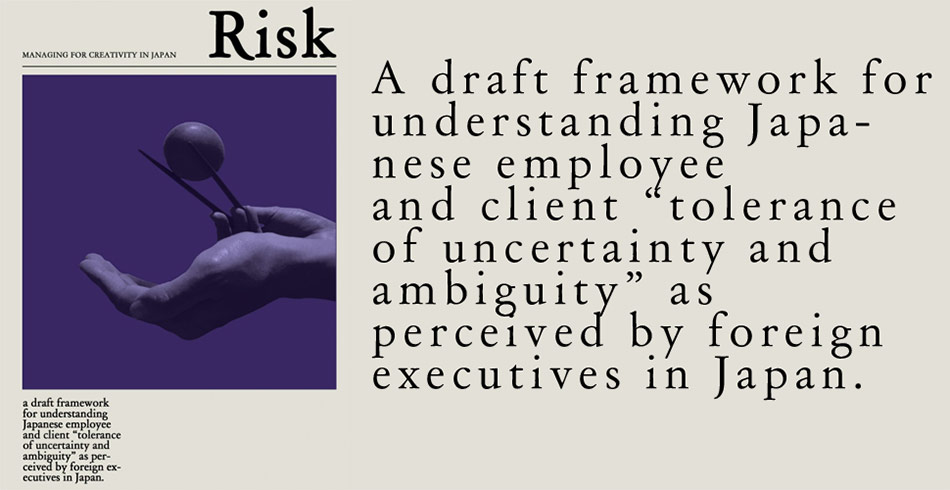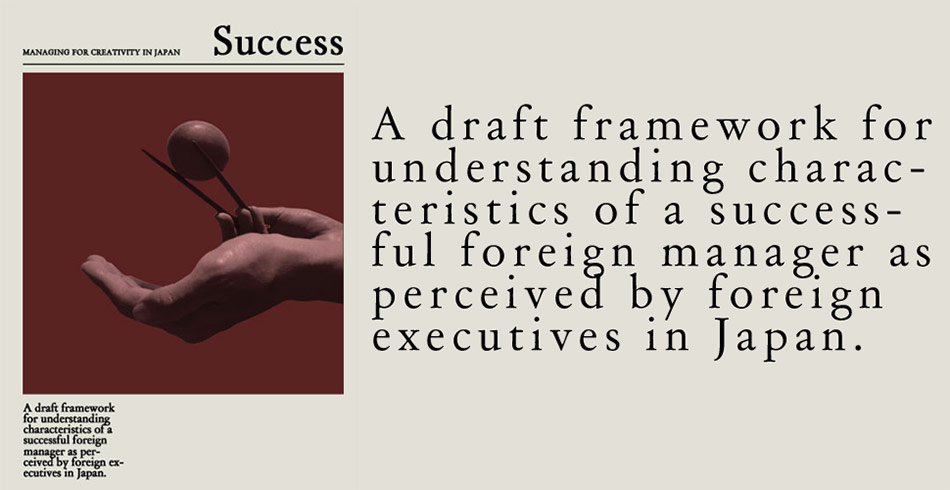“C: From your personal experience, even in terms of dealing with your staff can you see any concrete advantages to being a foreigner?
Well, you can promise people a different environment. You can set up a merit-based environment if you are hiring people, for example. In an international company there may be opportunities to travel. But, are people genuinely prepared to accept what a merit-based system actually means? This is something that I would really, really, question because you wonder if people coming to you because they can’t fit in their own culture or if are they coming to you because they’re high achievers and they’re frustrated. Or maybe they think they are high achievers and the people that they work for don’t agree and the people that they work for are right – in some sense it’s not a cultural issue but the fact that you have an incorrect evaluation of yourself (and of course we all believe that we are better than we are….) I do believe in picking talent and that has upset people in the past. Don’t come to me and think that your degree from Keio University is going to make it easier for you to progress in this company if your work is crap. Maybe as an outsider you can say that it’s not going to be like what it is in the normal stifling domestic office – if your work is good you will succeed. Then again, if you work in a merit-based culture then you are going to have to perform, and people are not used to the concept that they really are accountable for their personal performance. (C: So, you have the opportunity for setting up this framework for working and it is up to the employees to work within that…) Yes, but I’m not sure that I have a successful formula for that yet though. I tend to think that going too far towards the merit-based system may not be that successful and I don’t think I’ve ever experienced a Japanese employee motivated or having their motivation significantly increased by money. This doesn’t mean that you shouldn’t give it them, but it’s not the reason that they come to work. In fact you can cause offense if you make that assumption.”
****************************************************
This post is part of a series of excerpts from interviews with foreign executives in Japan, focusing on creativity. Excerpts have been edited for confidentiality.
We’d love to hear your thoughts and experiences in relation to this topic. Please feel free to comment directly on this site or get in touch at chris@a-small-lab.com (Chris Berthelsen)
All content on this IDEAS and DISCUSSION blog is provided by a-small-lab under a Creative Commons Attribution-Noncommercial-No Derivative Works 3.0 Unported License: You can SHARE this content as long as you CITE this work, and TELL US about your work (and send us a copy or link!). See Creative Commons for more detail

